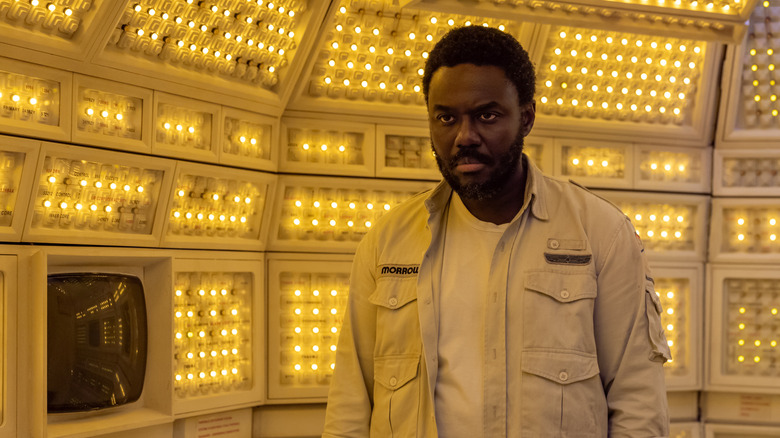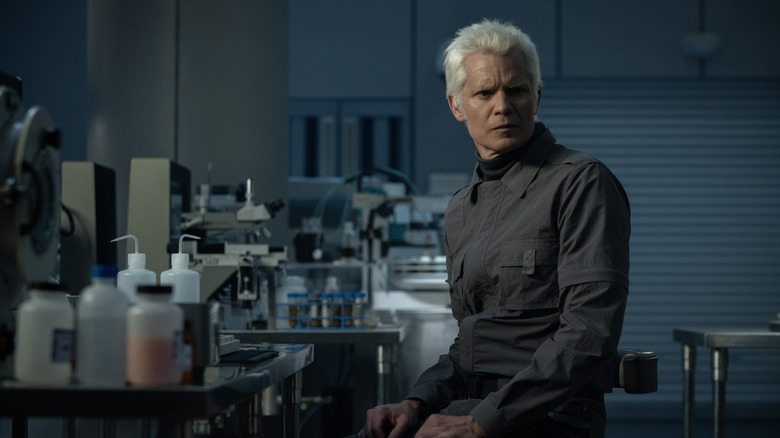Alien: Earth May Have Broken The Franchise Continuity – Does It Matter?
Spoilers follow.
The bigger your sci-fi franchise gets, the harder it is to keep the canon straight. It's a problem that stretches from "Star Wars" to "Star Trek." Eventually, once you have enough spin-offs, sequels, and prequels under you, once enough decades have passed since the beginning, plot holes and continuity lapses are inevitable.
The "Alien" franchise seems to have reached that point. Now seven movies, a big-budget TV series, two "Predator" spin-offs, and numerous video games and comic books later, what was once a simple sci-fi horror story about the unknowable terrors of deep space has become a massive saga filled with lore. From the origins of the Xenomorphs to the nature of Earth's megacorporations, lots of details have been filled in over the years, and "Alien: Earth," the latest addition on FX, does a lot of work in that regard by simple virtue of TV shows having a lot more screen time than films.The problem, though, is that not everything the new series has added to the "Alien" mythos fits with what came before – and that's by design.
Specifically, I'm talking about the timeline. You may have felt like something was off in the first couple of episodes, but it particularly started bugging me in episode 3, when Weylan-Yutani security officer Morrow (Babou Ceesay) calls in to report to corporate headquarters and is met with the harsh reality of having been gone from Earth for 65 years. However, given what we know about the series timeline, the order of events for his employment makes no sense. Yes, nitpicking timelines is low-hanging fruit, and yes, showrunner Noah Hawley has admitted to ignoring certain parts of the canon, but in a show that's all about corporate tensions, the contradictions stick out.
How Alien: Earth changes the Weyland-Yutani timeline
"Alien: Earth" takes place in 2120. The original "Alien," released in 1979, is set just two years later in 2122. Both stories begin aboard Weyland-Yutani vessels, which should make sense given their proximity. However, the mission in "Alien" is supposed to take less than two years in total, while the one in "Alien: Earth" is said to be a 65-year mission. The extra time is presumably due to the Maginot going much further into deep space than the Nostromo, but that also means that the show's ship would have left Earth all the way back in 2057.
Immediately, this causes problems. For one, the Maginot interior in "Alien: Earth" looks nearly identical to that of the Nostromo, from the cryo pods to the MU/TH/UR computer room. That's likely because the show's creators wanted to evoke the iconic aesthetic of Ridley Scott's film, but it doesn't really make sense why ships launched more than 60 years apart would be essentially the same make and model.
The bigger issue, however, involves Weyland-Yutani itself. See, that hyphenated name is the result of a major corporate merger between two distinct companies — Weyland, and Yutani. We know this because in "Prometheus," which takes place in 2089 — 32 years after the Maginot would have departed on its deep-space mission — Weyland Corp is still just Weyland Corp. That means that the merger would have occurred more than halfway through the voyage, yet when Morrow gets back to Earth, he calls into corporate HQ with a Yutani passcode that still works, and we learn that he had some sort of relationship with the current Yutani CEO's grandmother before he went to space.
Noah Hawley has said that he was focused more on the story of the show and broad strokes of the series than lining up every detail from the films, but he's stopped short of saying that the show straight-up isn't' canon. "It's not that I didn't do a timeline around the events," the showrunner said at SXSW this year (per Inverse). "But I didn't expand it to incorporate everything that had ever been written." Specifically, he named "Prometheus" as a part of the franchise that he didn't strongly adhere to.
The story in Alien: Earth might be a little too complicated
Is it possible that the Maginot mission started as a Yutani operation, then became a Weyland-Yutani mission mid-journey after the merger? Yes. Morrow's security clearances could have been updated while he was in space, and all the tech that we associate with the Nostromo could have been Yutani tech from the start, hence all the similarities between the ships. There are ways to explain away the strangeness in the timeline if you really want to stretch.
Again, I know that this may sound nitpicky, but the "Alien" timeline established in "Prometheus" isn't some extraneous detail from a '90s sourcebook or an obscure comic. This isn't a Ki-Adi-Mundi situation, where the only thing retconned was something that no normal fan would have ever heard of. It's major worldbuilding from a core film directed by the creator of the franchise.
Even if we give the show the benefit of the doubt and say that it all makes sense, the logistics of a 65-year mission conducted over the course of an immensely tumultuous time for corporate authority feels ... odd. How do you even track or stay on task with a mission that crosses multiple generations of corporate leadership? To be clear, I'm really enjoying my time with the show for the most part, and things like this don't ruin it for anyone. But it feels odd that in a show all about the corporate bureaucracy, and fully targeted at expanding the lore of the franchise, the core series of events seems to be up in the air.


